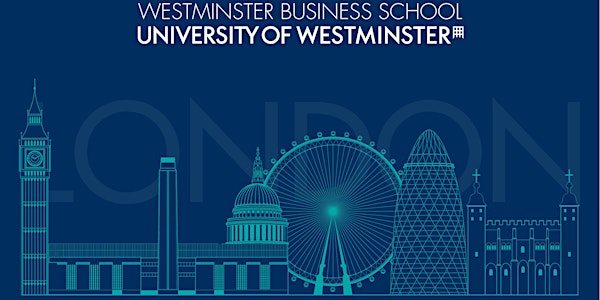
BUIRA History of Industrial Relations Study Group
Unite the Union: The Unite History Project
Date and time
Location
University of Westminster (Marylebone Campus)
35 Marylebone Road Room L195 London NW1 5LS United KingdomAbout this event
Organised by
Based in the heart of the capital’s political, media and financial services, Westminster Business School (WBS) has excellent industry links and global partnerships. Many of our degrees are recognised or accredited by national and international professional bodies.
Led by Professor Malcolm Kirkup, we offer a wide range of undergraduate, postgraduate, executive and short courses, preparing students to be responsible leaders and managers, able to support businesses in their role as world citizens.
Our academic experts provide consultancy, applied research and thought leadership across the public, private and third sectors, including the NHS, and we work with local, national and multinational companies.
Westminster Business School, University of Westminster, is one of London’s leading centres for professional business education. The School offers a wide range of undergraduate, postgraduate and professional programmes, including our MBA course.
London is our campus – home to leading national and multinational companies, corporations and organisations in almost every sector. Our practical teaching draws on and relates learning to the real world with guest speakers, field trips and live projects. Outstanding facilities include a state-of-the-art Bloomberg-powered Financial Markets Suite, Fabrication Laboratory and Digital Marketing Lab. We develop graduates with the relevant skills and mindset needed to respond proactively and creatively and responsibly to contemporary business challenges in a changing world.
All of our degrees are professionally focused and prepare students for working in their chosen careers. Alongside our quality courses, students have opportunities to enhance their practical experience through internships, professional placements and study abroad. Our central London location provides strong links with the business and government communities enabling us to bring practitioners and experts into the classroom on a regular basis.
We have a diverse student population which reflects London’s demographic variety and every year we welcome hundreds of students from Asia, Australia, continental Europe and the United States. We also have visiting scholars and researchers from all over the world. Although we are a school with a strongly international outlook, we also offer a range of part-time qualifications for working professionals.